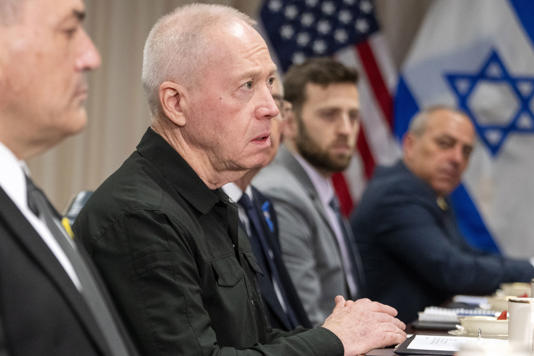In recent days, tensions between the United States and Israel have escalated amidst the backdrop of the ongoing conflict in Gaza. The meeting between US defense leaders and Israel’s minister of defense underscores the complexities of their relationship and the challenges they face in addressing the crisis. As the situation in Gaza continues to deteriorate, both countries must navigate a delicate balance between supporting Israel’s security and addressing humanitarian concerns.
Understanding the Dynamics: The relationship between the United States and Israel has long been characterized by close military cooperation and shared strategic interests. Israel has been a key ally for the US in the Middle East, providing valuable intelligence and military support in the region. However, recent events have strained this relationship, with disagreements emerging over how to address the crisis in Gaza.
At the heart of the matter is the question of how to respond to Hamas, the militant group that controls the Gaza Strip. Israel sees Hamas as a terrorist organization and a threat to its security, while the US has called for restraint and de-escalation in the conflict. The recent UN Security Council resolution calling for a cease-fire has further highlighted the diverging views between the two allies.
Challenges and Considerations: One of the main challenges facing US-Israel relations is how to balance Israel’s right to self-defense with concerns about civilian casualties and humanitarian suffering in Gaza. While Israel maintains that it has the right to defend itself against Hamas rocket attacks, the high number of civilian casualties in Gaza has drawn condemnation from the international community.
The Biden administration has expressed support for Israel’s right to defend itself but has also called for measures to minimize civilian harm and facilitate humanitarian aid to Gaza. This delicate balancing act requires careful coordination between the US and Israel to ensure that military actions do not exacerbate the humanitarian crisis in Gaza.
Another key consideration is the role of the US Congress, which plays a significant role in shaping US policy towards Israel. In recent years, there has been growing bipartisan support for conditioning US military aid to Israel on human rights concerns, particularly regarding the treatment of Palestinians. This has added another layer of complexity to the US-Israel relationship and has led to tensions between the two allies.
The Way Forward: As the situation in Gaza continues to evolve, both the US and Israel must work together to find a path towards peace and stability in the region. This will require dialogue, cooperation, and compromise on both sides to address the underlying causes of the conflict and address the humanitarian needs of the Palestinian people.
Key steps include supporting diplomatic efforts to achieve a cease-fire, providing humanitarian assistance to Gaza, and promoting dialogue between Israelis and Palestinians to address the root causes of the conflict. Additionally, the US must continue to engage with Israel to ensure that its military actions are conducted in a manner that respects international law and minimizes civilian harm.
The recent tensions between the United States and Israel underscore the complexities of their relationship and the challenges they face in addressing the crisis in Gaza. As both countries navigate these challenges, they must remain committed to finding a peaceful and sustainable solution to the conflict that addresses the legitimate security concerns of Israel while also addressing the humanitarian needs of the Palestinian people. Only through dialogue, cooperation, and compromise can lasting peace and stability be achieved in the region.
